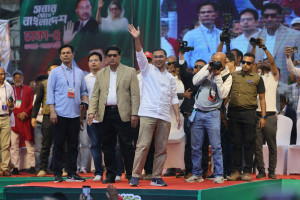World
Hollande blames ISIS for ‘Act of War’ on Paris
President François Hollande called the terrorist attacks that killed 127 people in Paris on Friday night an “act of war,” and blamed the slaughter on the Islamic State.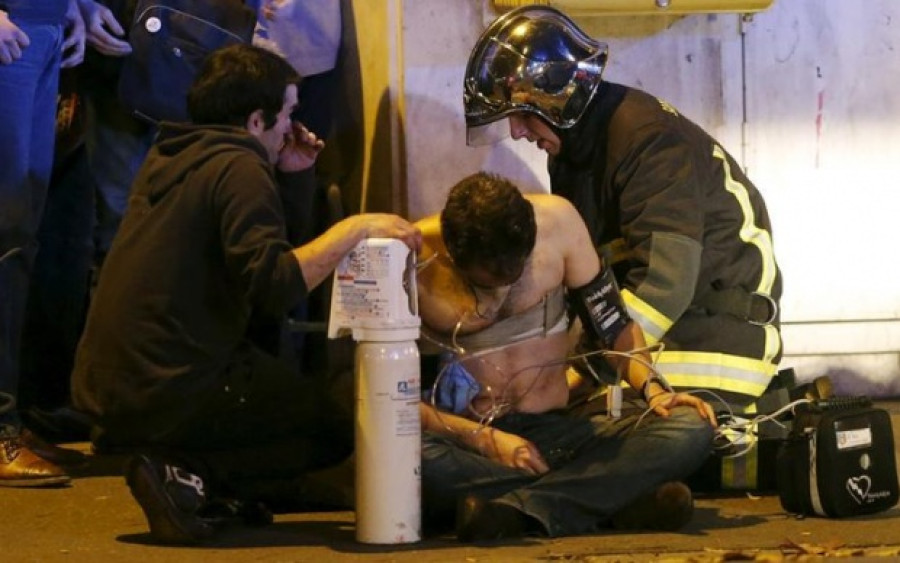
The New York Times
President François Hollande called the terrorist attacks that killed 127 people in Paris on Friday night an “act of war,” and blamed the slaughter on the Islamic State.
“It is an act of war that was committed by a terrorist army, a jihadist army, Daesh, against France,” Mr. Hollande said from the Élysée Palace, using an Arabic acronym for the Islamic State. “It is an act of war that was prepared, organized and planned from abroad, with complicity from the inside, which the investigation will help establish.”
Mr. Hollande did not specify what intelligence the authorities had gathered to established the Islamic State’s involvement.
The Islamic State on Saturday claimed responsibility for the attacks, calling them “miracles” in a statement released by one of its publications and distributed on Twitter — a claim that could not be independently verified.
Stricken with shock and grief, Parisians rose Saturday to a state of national emergency, with public transportation hobbled and institutions — schools, museums, libraries, pools, food markets — all closed.
The authorities continued to look for possible accomplices of the eight attackers known so far, all of whom died on Friday: seven by detonating suicide bombs and one in a shootout with the police at a concert hall, the Bataclan, where gunmen methodically killed at least 80 people.
Dozens of others died in apparently coordinated attacks outside the Stade de France, where the French and German soccer teams were playing an exhibition match, and four other restaurants and bars in the city. Nearly 200 others were wounded, at least 80 of them in critical condition, French television reported.
Foreign Minister Laurent Fabius, meeting in Vienna on Saturday with Secretary of State John Kerry and other top diplomats to discuss the crisis in Syria, said the attacks highlighted the urgency of the talks. “It is more necessary than ever in the current circumstance to coordinate the international fight against terrorism,” he said.
The casualties, in what Mr. Hollande called an “unprecedented” assault, eclipsed by far the deaths in Paris during the massacre at the satirical newspaper Charlie Hebdo and related attacks around the French capital by Islamic militant extremists in January. His government announced sharply increased border controls and heightened police powers as it mobilized 1,500 soldiers to guard the capital.
The Friday attacks threatened to further traumatize France and other countries in Europe, elevating fears of religious extremism and violent jihadists who have been radicalized by the conflicts in Syria and elsewhere in the Middle East and North Africa.
And with the police still staking out the six crime scenes, France was left grappling once again for answers to a string of questions, beginning with who had carried out the attacks, whether they had accomplices who remained at large, and how a plot of such sophistication and lethality could have escaped the notice of the authorities.
“We are going to try to determine what happened, determine what the profiles of these terrorists are, find out what their course of action was, find out if there are still accomplices or co-attackers,” said François Molins, the public prosecutor for Paris.
Parents whose children slept through the ordeal were facing the delicate task of trying to explain what had happened, and why so many planned activities canceled and public spaces like museums, schools and libraries closed.
Liz Kashani, a Californian who has been in Paris since Wednesday, said she had gone out for dinner Friday night and had no idea about the attacks until worried friends and relatives began checking up on her from the United States. “We’re concerned,” Ms. Kashani, who was scheduled to fly back later Saturday, said as she waited for her coffee at a bakery-cafe in the affluent seventh arrondissement, far from the violence.
She and her traveling companion had slept little and were planning to arrive early at the airport. “We don’t know what to expect, and we’re so saddened for everybody,” she said. “We remember how we felt back in September 2001. It’s a horrible feeling.”
The owner of the bakery-cafe, who asked that her name not be used, laughed when asked how she had slept. “Oh, really well,” she smiled, brushing a lock of hair fromher face. “It’s going to be a long day.”
Witnesses on French television said the scene at the concert hall, which can seat as many as 1,500 people, was a massacre, describing how gunmen with automatic weapons shot bursts of bullets into the crowd.
“What you are doing in Syria, you are going to pay for it now,” one of the gunmen shouted, a witness said.
Ambulances were seen racing back and forth in the area into the early hours of Saturday, and hundreds of survivors were evacuated in police buses. French television said Paris hospitals were overwhelmed with wounded.
An explosion near the sports stadium, the Stade de France, which French news services said was apparently a suicide bombing, occurred as the German and French national teams were playing a soccer match, forcing a hasty evacuation of Mr. Hollande. As the scope of the assaults quickly became clear, he convened an emergency cabinet meeting and announced that France was placing severe restrictions on its border crossings.
“As I speak, terrorist attacks of an unprecedented scale are taking place in the Paris region,” he said in a nationally televised address. “There are several dozen dead, lots more wounded. It’s horrific.”
Mr. Hollande said that on his orders the government had “mobilized all the forces we can muster to neutralize the threats and secure all of the areas.”
Expressions of sympathy and resolve continued to pour in from world leaders, including the heads of government of Belgium, Burundi, Canada, India, Malaysia, Mexico and Spain.




 13.16°C Kathmandu
13.16°C Kathmandu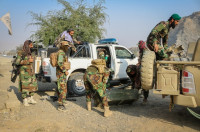
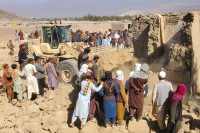


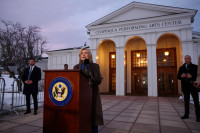
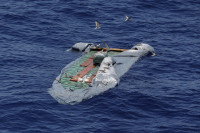
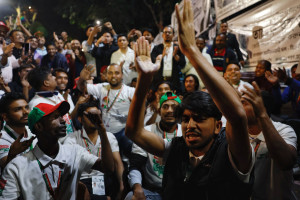

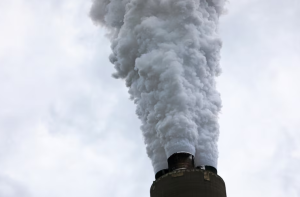
.JPG&w=300&height=200)
